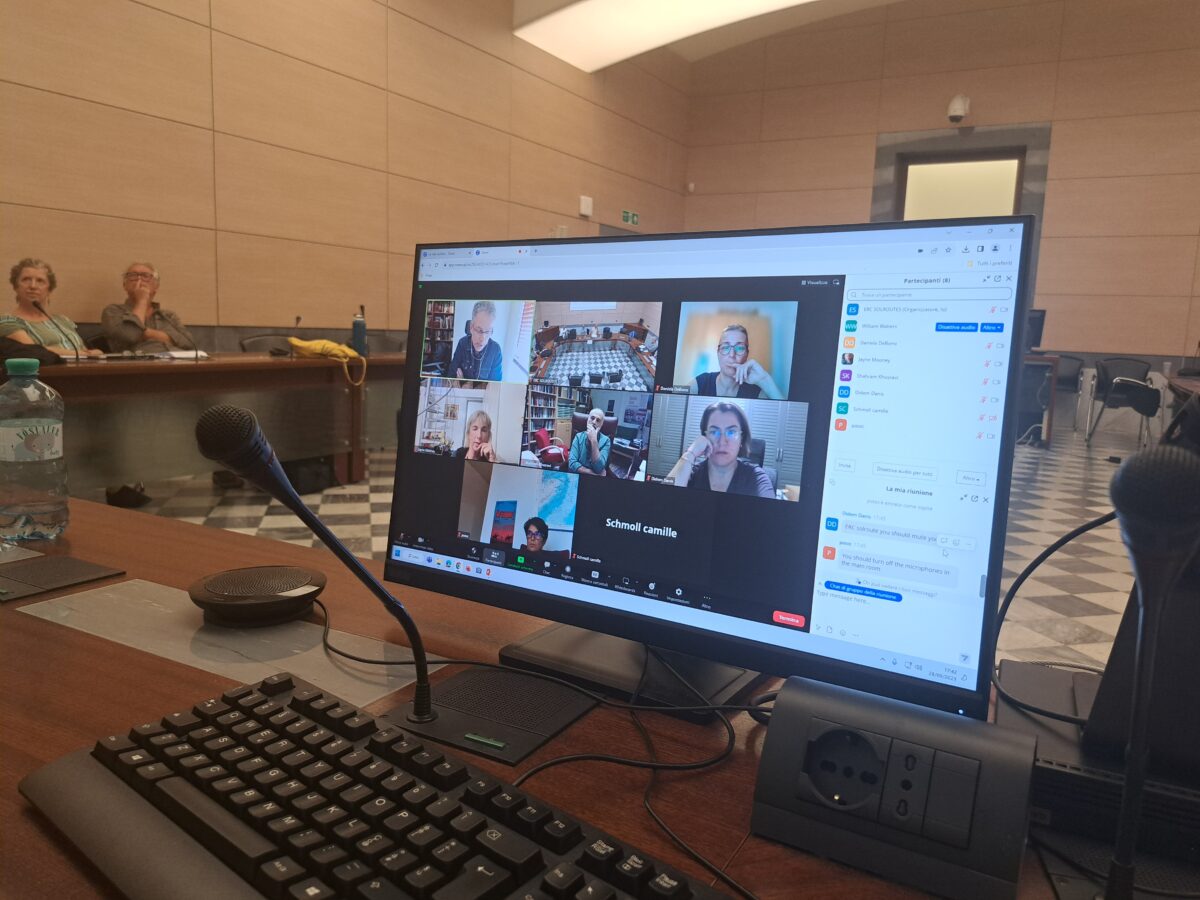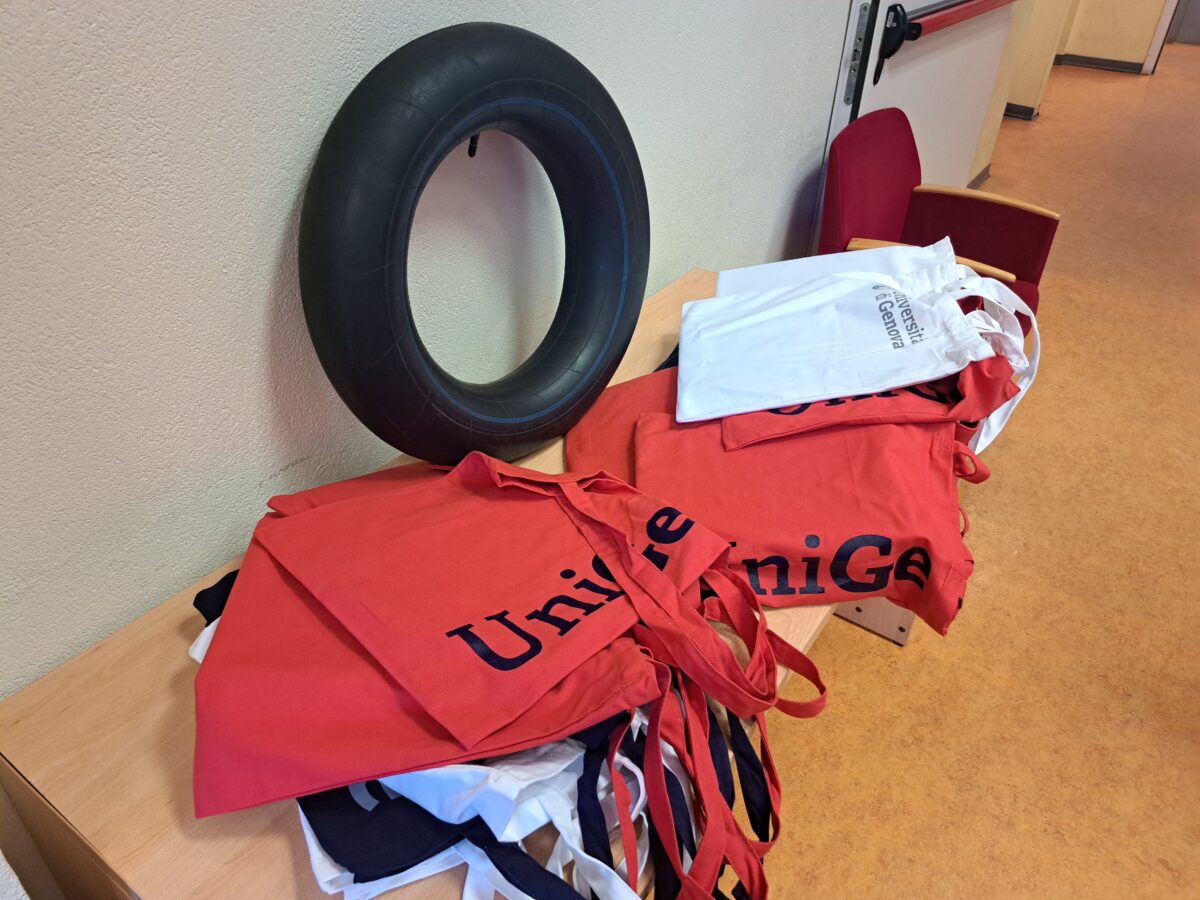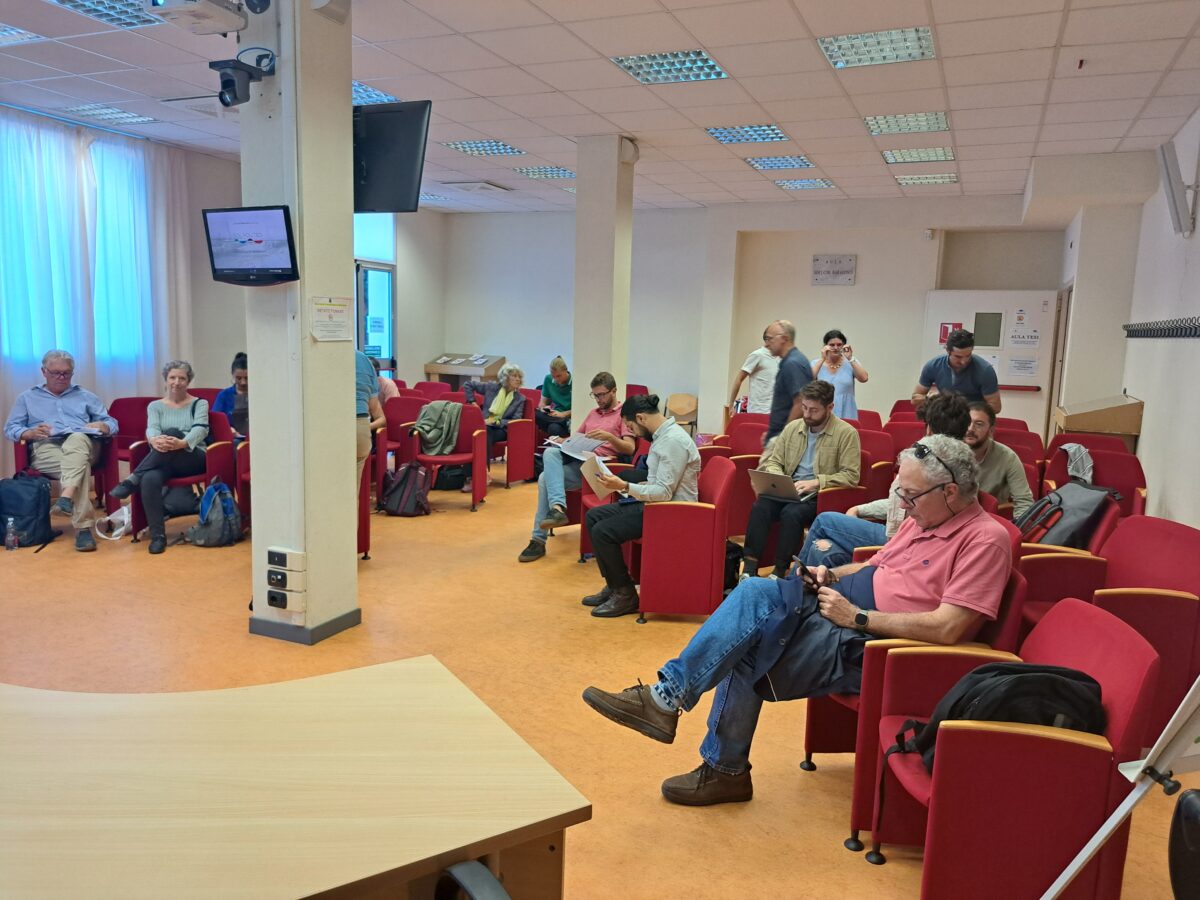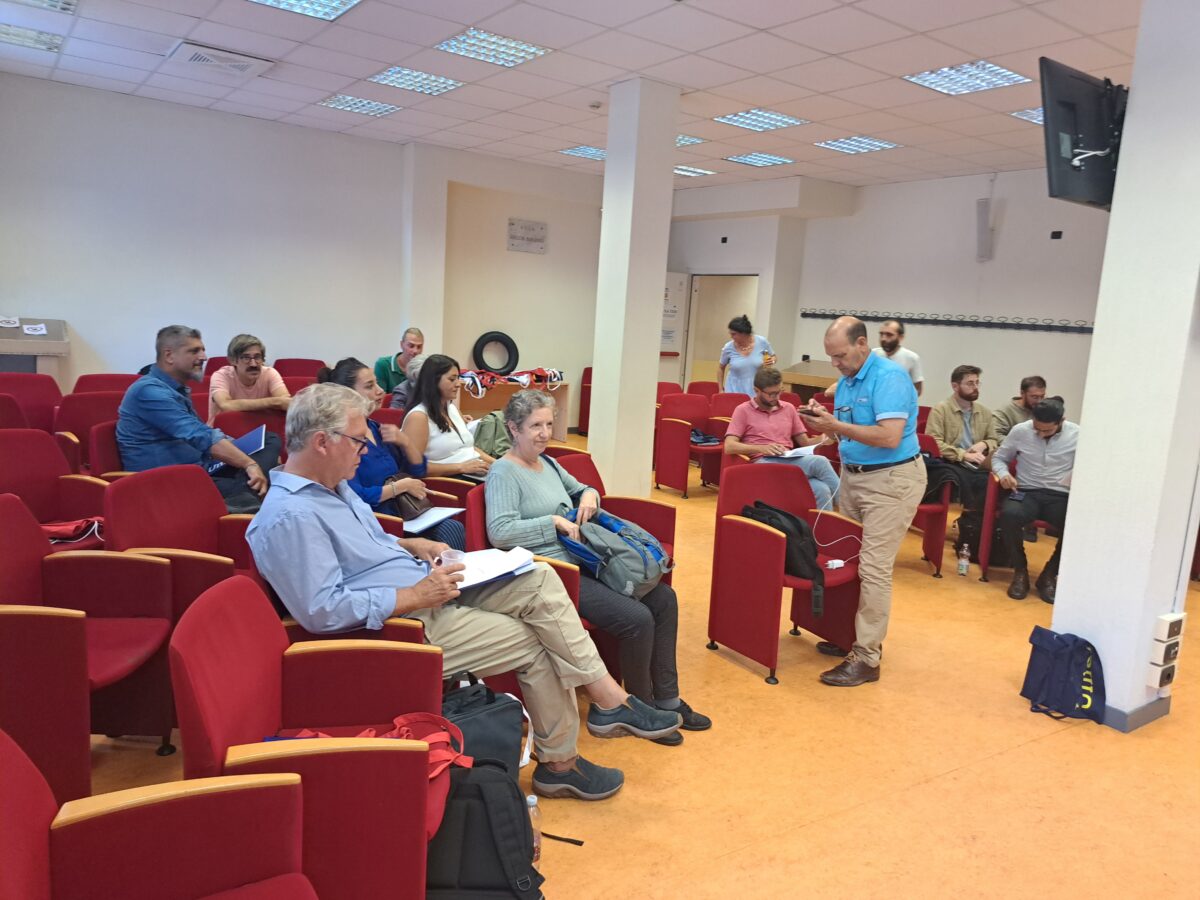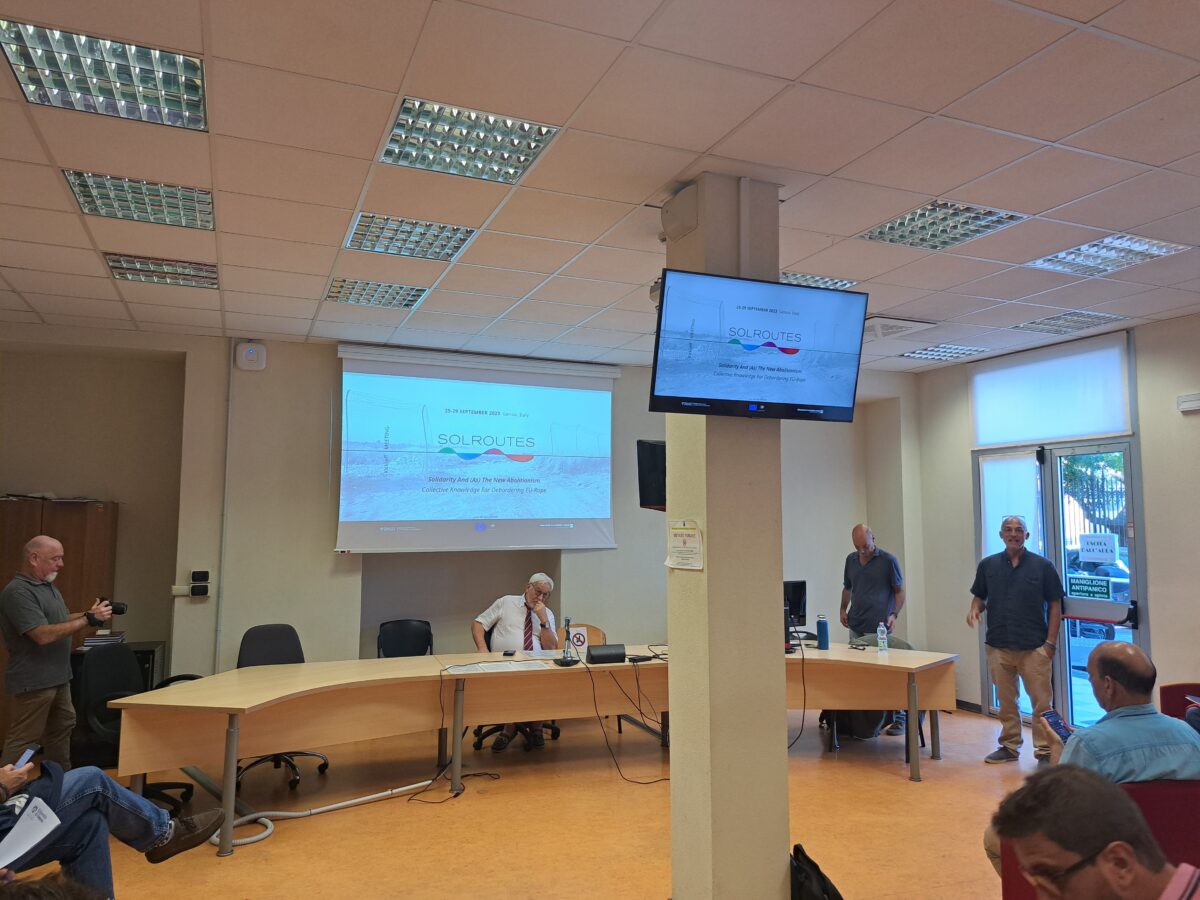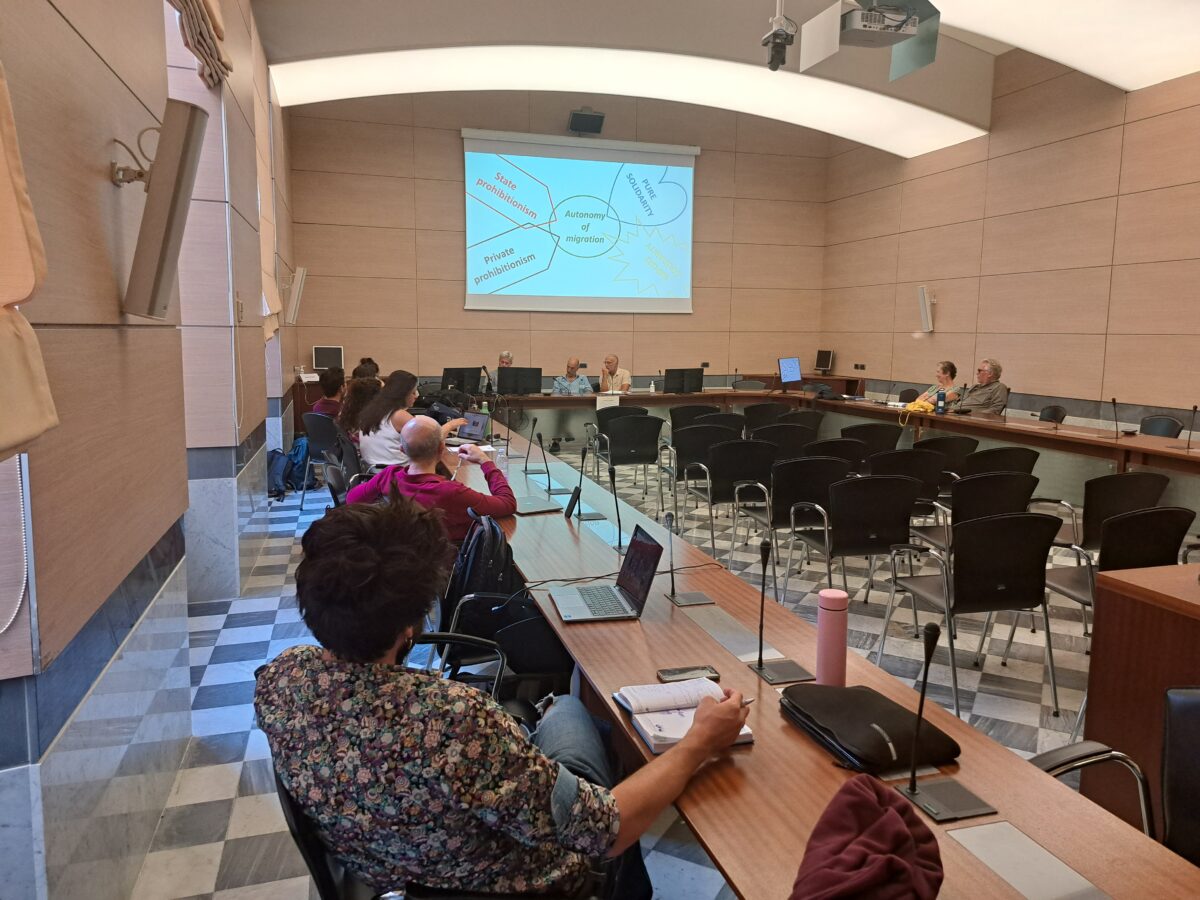Meeting
25 September - 29 September 2023
SOLROUTES Kick-Off
Solidarity And (As) The New Abolitionism. Collective Knowledge For Debordering EU-Rope.
Genoa, Italy
SOLROUTES, as a research project, is a relational immersion into the underworld of “migrant” illegalized movements towards, around and through Europe – what elsewhere we referred to with the image of an underground Europe crisscrossing, exceeding and defying European border regime or “borderland”. It therefore meshes together and confronts itself with two words, routes and solidarity, assuming the latter as the fuel or energy that enables and feeds the material constitution and conditions of possibility for the formers. Routes are thus conceived of as concrete spatial solidarity’ outcomes, in terms of as many territories of re-articulation, connection, transit and dwelling that cross the violent bordered landscape in turn triggered and challenged by illegalized movements. And they are also the outcome of the mutual (and at time conflictual) cooperation and complicity among people on the move, one that is often supported by groups of activists and actors of local civil society.
SOLROUTES intends to be a mixed, multi-sited and multi-scalar ethnographic journey unfolding along the routes together with people on the move. Based in different localities and “stations” within and around Europe (from Belgium and Italy to Morocco, Tunisia, Turkey, up to European postcolonial outposts of French Guiana and Mayotte), it aims at decentering, debordering and at the same time provincializing Europe. For this reason, it inscribes itself both politically and conceptually into a specific abolitionist horizon. By referring to the African-American and feminist approaches (that one of Ruth Gilmore, Angela Davis, and many others), it conceives of such a standpoint, rather than as a gesture of erasure and delete, as a constituent moment that directly counters any prohibitionist border regime, its necropolitical effects and racialized landscape, opening up the possibility for a different, post or decolonial “Europe at large”.
Why and How about a Kick-off meeting
The SolRoutes project's kick-off meeting occurred from September 25th to 29th, 2023 in Genoa. This week-long event was thought to conclude the preliminary training period, which ran from February to September 2023, and introduce the upcoming fieldwork period from October 2023 to March 2024. It aimed to strengthen and widen the project’s ties with invited academics, experts, and artists as well as establish new connections, open up new avenues, increase the project's visibility and pave the way for wider dissemination of results.
The meeting hosted various sessions, including presentations and discussions on theory, methodologies, ethics, creative methods, antenna reports and PhD research plans. The principal investigators of the project, Luca Queirolo Palmas and Federico Rahola, introduced the event and concluded it with a plenary session of reflections and feedback. Two parallel workshops among researchers and invited artists discussed how to develop creative methods and do ethnography on migrations and solidarities in the Maghreb area, in Belgium and Turkey. Moreover, the SolRoutes team introduced and discussed its work in specifically designed sessions with members of both the Scientific Advisory Board (SAB) and members of the Scientific Committee for Ethnographic Research and Ethics (SCERE). During the kick-off meeting, the work on the ‘outermost landscapes’ of Mayotte and French Guiana, to be started at the end of the third year, was also introduced. Additionally, two public events were held outside the university premises, including a film screening followed by a book presentation on ‘gendered borders’ and a roundtable on ‘the sea as a battleground for solidarities’.
However, there were a few points that need addressing in future meetings. Firstly, the schedule was too tight, resulting in participants feeling overwhelmed by too many events in a day. Longer breaks and more time to reflect on discussions would be beneficial. Secondly, speakers' time limits were not always clear, and session chairs were not appointed in advance, leading to some speeches lasting too long, while others were not chaired at all. Thirdly, feedback on the methodology paper was limited, with discussions focusing more on broader methodology issues than the specific aspects addressed by the paper. Lastly, the Workshop on "doing ethnography on migrations and solidarities in the Maghreb area" lacked a clear focus and did not provide any specific inputs related to the Solroutes project. Presentations were disconnected from one another, and there was no common discussion on any particular issue. In the future, meetings should pay more attention to these aspects to ensure a more effective and productive experience for all participants.
Who did get involved
Solroutes team members: Livio Amigoni, Massimo Cannarella, Camille Cassarini, Nadia Chaouch, Paolo Cuttitta, Rassa Ghaffari, Dorian Jano, Lülüfer Körükmez, Michela Lovato, Ismail Oubad, Luca Queirolo Palmas, Federico Rahola.
SAB members: Maurizio Ambrosini (Università di Milano), Dave Brotherton (City University of New York), Daniela De Bono (University of Malta), Michael Hardt (Duke University), Shahram Khosravi (University of Stockholm), Sandro Mezzadra (Università di Bologna), Jayne Mooney (John Jay College, New York, and Queen University Brisbane), Ferruccio Pastore (FIERI Torino), Swanie Potot (Université de Nice), Maria Dolores Pombo (Colegio de La Frontera, Tijuana), Ranabir Samaddar (Calcutta University), Camille Schmoll (EHESS Paris), William Walters (Carleton University).
SCERE members: Luca Giliberti (Università di Parma), Hassan Boubakri (CeTuMa, Tunis), Khalid Mouna, (RSSI, Rabat), Didem Danış, (GAR, Istanbul), Marco Martiniello (CEDEM - University of Liège), Marianne Palisse (Université de Guyane), Georgeta Stoica (Centre Universitaire Mayotte).
Other academic and non-academic experts:
Vittorio Alessandro (retired Admiral of the Italian Coast Guard), Jacopo Anderlini (University of Parma), Giulia Moretto (No Name Kitchen), Andrés Antebi (filmmaker), Leon Blanchaert (Mediterranea Saving Humans), Ivan Bonnin (University of Genoa), Anna Brambilla (ASGI – Associazione Studi Giuridici sull’Immigrazione), Michele Cinque (filmmaker), Luca Daminelli (University of Genoa), Marcia Esparza (John Jay College of Criminal Justice), Andrea Ferraris (illustrator), Gaddo Flego (doctor on search and rescue ships), Enrico Fravega (University of Genoa), Filippo Furri (Migreurop – Institut Convergences Migrations, Paris), Francesca Goletti (University of Genoa), José González Morandi (filmmaker), Piero Gorza (Onborders), Georges Kouagang (cultural mediator), Laura Martinelli (ASGI – Associazione Studi Giuridici sull’Immigrazione), Antonino Milotta (artist, University of Genoa), Lorenzo Pezzani (University of Bologna), Simona Sala (artist), José Sánchez García (Pompeu Fabra University, Barcelona), Kevin Smets (Vrije Universiteit Brussels), Filippo Torre (University of Genoa), Alessandra Vannucci (theatre director), Emanuela Zampa (photographer).
What the outcomes were
The kick-off meeting held significant importance for the project, as it set the stage for subsequent steps. Firstly, the invited experts and other participants provided valuable feedback on the antennae reports and PhD research plans. Additionally, the workshop on 'doing ethnography on migrations and solidarities in the Maghreb area' offered further suggestions to refine the fieldwork and research projects of the PhD students. Secondly, the PhD students had the opportunity to meet the representatives of the partner institutions in the countries where they will carry out their fieldwork, as well as other experts who they can rely on whenever needed. This will ensure the feasibility of the fieldwork in Morocco, Tunisia, Turkey, and Belgium. Thirdly, the Solroutes team presented two papers, one on theory and the other on methodology and ethics, which received productive feedback from discussants and other conference participants. The comments were particularly helpful regarding the theoretical paper, which aims to develop critical and innovative notions of solidarity. The discussion highlighted the innovative qualities of this theoretical approach, which focuses on the 'global south' and multiple forms of cooperation. However, some discussants pointed out that this approach was too wide-ranging and could undermine the concept's analytical capacity. Overall, the discussion suggested that the research team should continue to pursue this approach and apply it to ethnographic situations. In terms of methodology, the kick-off meeting proved to be very useful for the research team. The discussions helped to determine the best ways to conduct the research, including using a multi-sited and mobile ethnographic approach, complementing traditional methods with digital ethnography, establishing mobile research groups, and setting up generative narrative workshops. These activities will be tailored to the specific environments in which they are conducted. The team was praised for their reflective efforts and the various approaches that were discussed. The presentations on Mayotte and French Guiana helped to integrate these territories into the project, while the public events provided additional training and introduced the project to a wider audience. Finally, the project's progress was assessed and validated by the SAB, while the feasibility of the fieldwork was verified by the SCERE, including ethical concerns.
